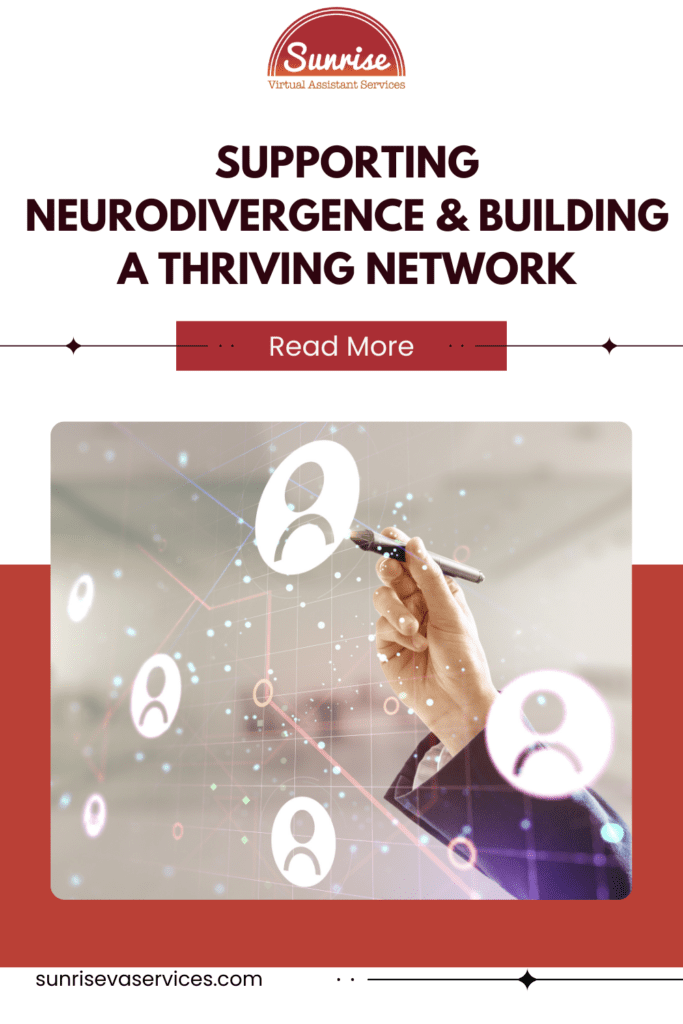Supporting neurodivergence isn’t just the right thing to do—it’s a way to build stronger teams and create an inclusive culture where everyone thrives.
Neurodiverse individuals, with their unique perspectives, innovative problem-solving skills, and diverse ways of thinking, have the potential to transform our workplaces, schools, and society.
Yet, for many, the term neurodiversity still sits beneath the proverbial umbrella term of mental health conditions without much understanding of its vast scope.
The good news? The neurodiversity movement has gained momentum, largely thanks to trailblazers like Judy Singer (the sociologist who coined the term “neurodiversity”) and the recognition that neurological differences are not deficits but valuable aspects of the human brain.
Today, we’ll explore actionable strategies to support neurodivergent people—including neurodivergent employees, neurodivergent students, and others—in ways that benefit your entire organization.
What Is Neurodivergence, Anyway?
Before we jump into the how, let’s address the what.
Neurodivergence refers to varying differences in brain function and neurological development.
It includes conditions like autism spectrum disorder, attention deficit hyperactivity disorder (ADHD), dyslexia, obsessive-compulsive disorder (OCD), and sensory processing challenges.
Neurodivergent individuals process information differently than neurotypical people, often excelling in areas like pattern recognition, innovative problem-solving, and focus on detail.
Supporting neurodivergent talent doesn’t mean tokenism or placing individuals into cookie-cutter roles. It means understanding their needs and creating an inclusive environment where they can do their best work.
Why Supporting Neurodivergence Matters
Failure to support neurodivergent individuals doesn’t just harm them—it limits what your entire organization (or school or team) can achieve.
Studies like the celebrated Harvard Business Review article highlight that a neurodiverse workforce is a competitive edge.
Let’s break it down into bite-sized benefits:
- Tapping into Unique Strengths: Autistic people, for example, often bring unmatched attention to detail and focus. Similarly, neurodivergent colleagues with ADHD might thrive in creative, fast-paced environments.
- Driving Positive Change: Supporting neurodivergence fosters a safe space for all employees, encouraging open conversations not just about neurological differences but also about mental health, sexual orientation, and overall inclusivity.
- Boosting Team Dynamics: When your team includes diverse ways of thinking, it leads to valuable insights, better communication styles, and enhanced group work.
- Improving Recruitment & Retention: By recognizing and addressing the specific needs of neurodivergent candidates during the hiring process, organizations can welcome skilled talent that might otherwise be overlooked.
How to Support Neurodivergent Individuals
Here’s the fun part—equipping you with actionable strategies to build a thriving and neurodiverse community.
Grab a coffee (or three—we don’t judge) and take notes.
1. Understand Neurodivergence’s Unique Challenges
Different people have different ways of processing the world.
Some neurodivergent conditions mean difficulty interpreting social norms or cues (e.g., maintaining eye contact during conversations).
Others may struggle with executive functioning (think managing deadlines or multitasking).
Awareness of these unique challenges allows you to make reasonable adjustments, training programs, and tweaks to workplace environments.
Pro Tip: Record your personal observations and offer specific feedback. See how an adjustment, such as allowing noise-canceling headphones at work, can significantly help someone perform their duties better.
2. Adapt Your Recruitment Process
Traditional hiring methods can be alienating for neurodivergent job candidates.
To tap into neurodiverse talent, refresh your hiring process with an inclusive lens.
Instead of evaluating candidates solely based on their ability to answer rapid-fire questions during the interview process, test their skills in a format that works for them.
- Provide clear instructions ahead of time.
- Allow extra time for responses and follow-ups.
- Use visual aids during interviews to help clarify questions.
This not only helps neurodivergent candidates but can also lead to better-qualified hires overall.
3. Build an Inclusive Environment
Creating a safe space for neurodivergent and neurotypical employees to collaborate is critical.
Start by implementing small but practical tools designed for universal accessibility.
For instance, provide assistive technologies where needed, normalize flexible schedules, respect diverse communication styles, and ensure your policies reflect inclusivity.
Best Practices: Need to include neurodivergent team members in group work? Pair them with trainers and partners who meet them where they are, combining high expectations with understanding.
4. Invest in Neurodiversity Training
Superstars don’t happen overnight. Neither do inclusive cultures.
As a leader, it’s crucial to set the tone for your organization’s approach to neurodiversity. Offer regular neurodiversity training sessions for leadership and support staff.
Training programs should focus on supporting specific needs while also addressing larger cultural issues like ableism or the unconscious biases around developmental disabilities.
Training isn’t just about theoretical knowledge—embed practical tools to improve daily practices.
5. Encourage Open-Dialogue Policies
Normalize discussions around neurodivergence so individuals feel encouraged—not awkward—sharing their unique needs or personal experience.
Open dialogue is a powerful tool that can foster understanding and collaboration, creating a supportive environment where team members, whether neurodivergent or neurotypical, can communicate confidently.
For example, consider a buddy system in team building exercises or structured Q&A sessions at workplaces for neurodivergent colleagues who need clarity on communication styles.
6. Advocate for Strength-Based Support
Forget exhaustive lists of limitations; focus instead on unique perspectives or talents.
Does one of your neurodivergent colleagues excel in data analysis due to attention to detail? Give them role-specific resources (like training) to shine.
Expand this strength-based support to include incentives for neurodivergent employees, support for social interaction challenges, and inclusive policies for neurodivergent kids in school.
7. Foster Community & Belonging
“What do neurodiverse people value most in an inclusive culture?” Beyond shared values, it’s about belonging, friendships, and comfort in self-expression.
Whether hosting a neurodivergence support series to showcase employee success stories or organizing informal meet-ups, celebrate the neurodiverse workforce actively.
8. Provide Individualized Accommodations
From tailored onboarding processes for new neurodivergent workers to flexible learning formats for neurodiverse students, accommodations can make or break progress.
And don’t assume a one-size-fits-all approach works across the board—your neurodivergent talent may require meticulous planning.
Celebrating the Neurodiverse Workforce
Supporting neurodivergence fosters a future where workplaces, schools, and society can thrive simply by valuing all forms of human brain function. Neurodiverse employees unlock potential others miss, armed with innovative problem-solving skills and fresh ideas that expand organizational success.
Start with courage and curiosity—ask, “What support can we offer?” Then, take action, from the hiring process to creating inclusive workplace environments.
Remember one thing as you consider building a neurodiverse workforce or supporting autistic students on the autism spectrum disorder—change begins with you.
It’s not just about the competitive advantage or compliance; it’s about driving positive change for individuals and the entire organization.
Together, we can create a world that highlights neurodivergent conditions not as barriers but as opportunities for growth and connection. Supporting neurodivergence is your bold step toward a more inclusive workplace, school, and society.
So, what’s stopping you? Join the neurodiversity movement today to unlock unique strengths and create inclusive cultures that thrive.


